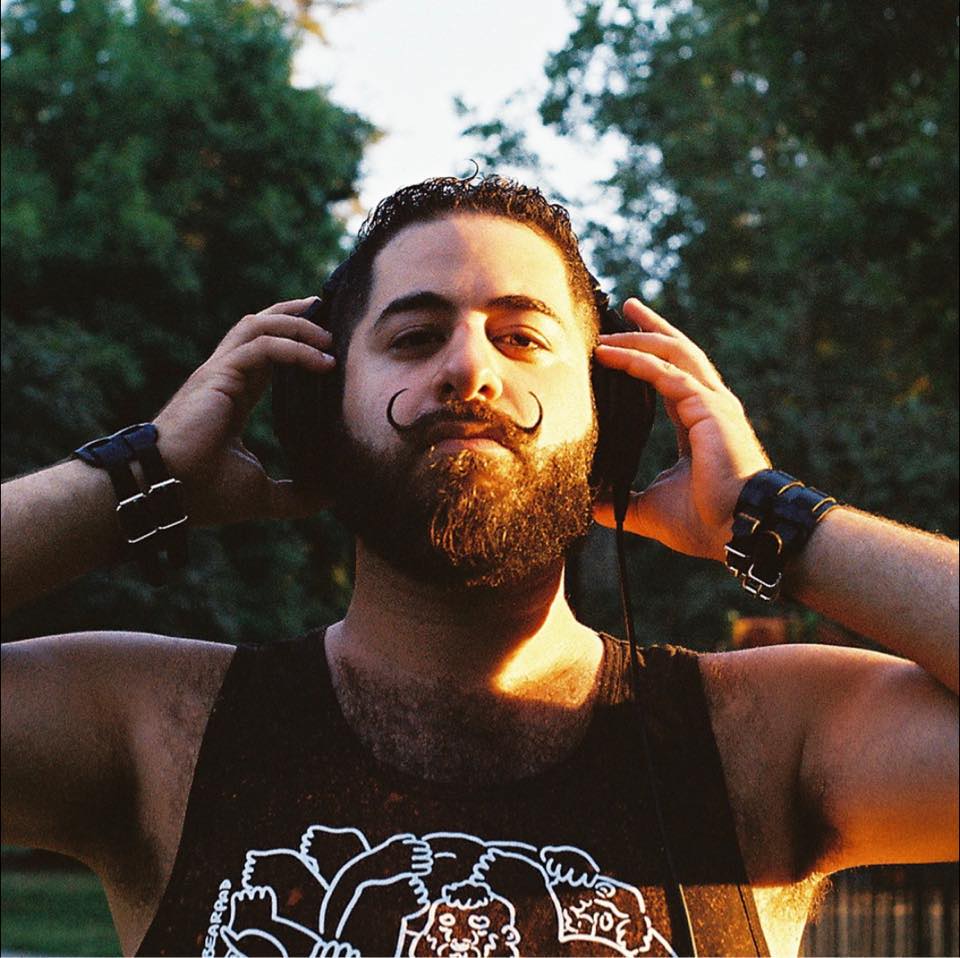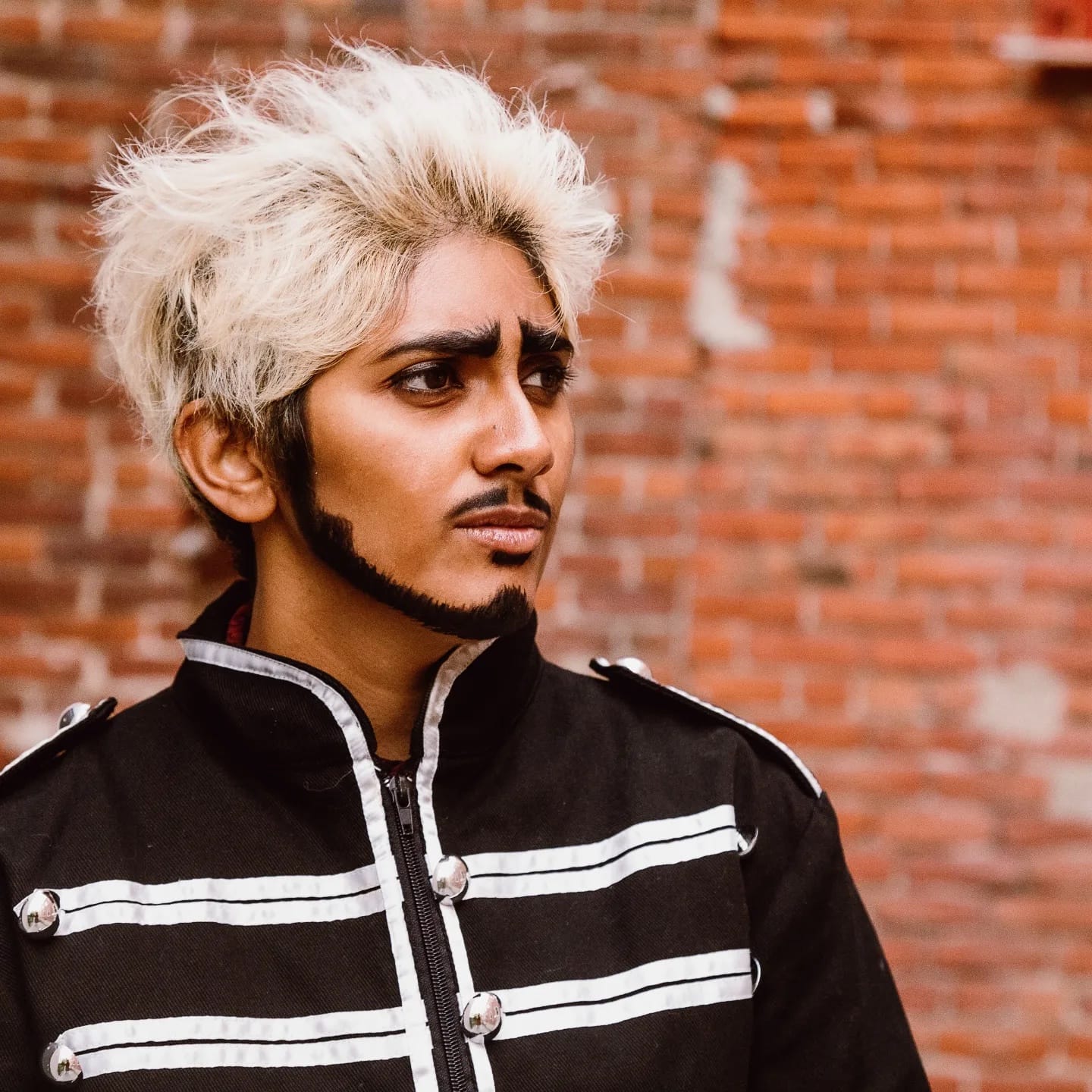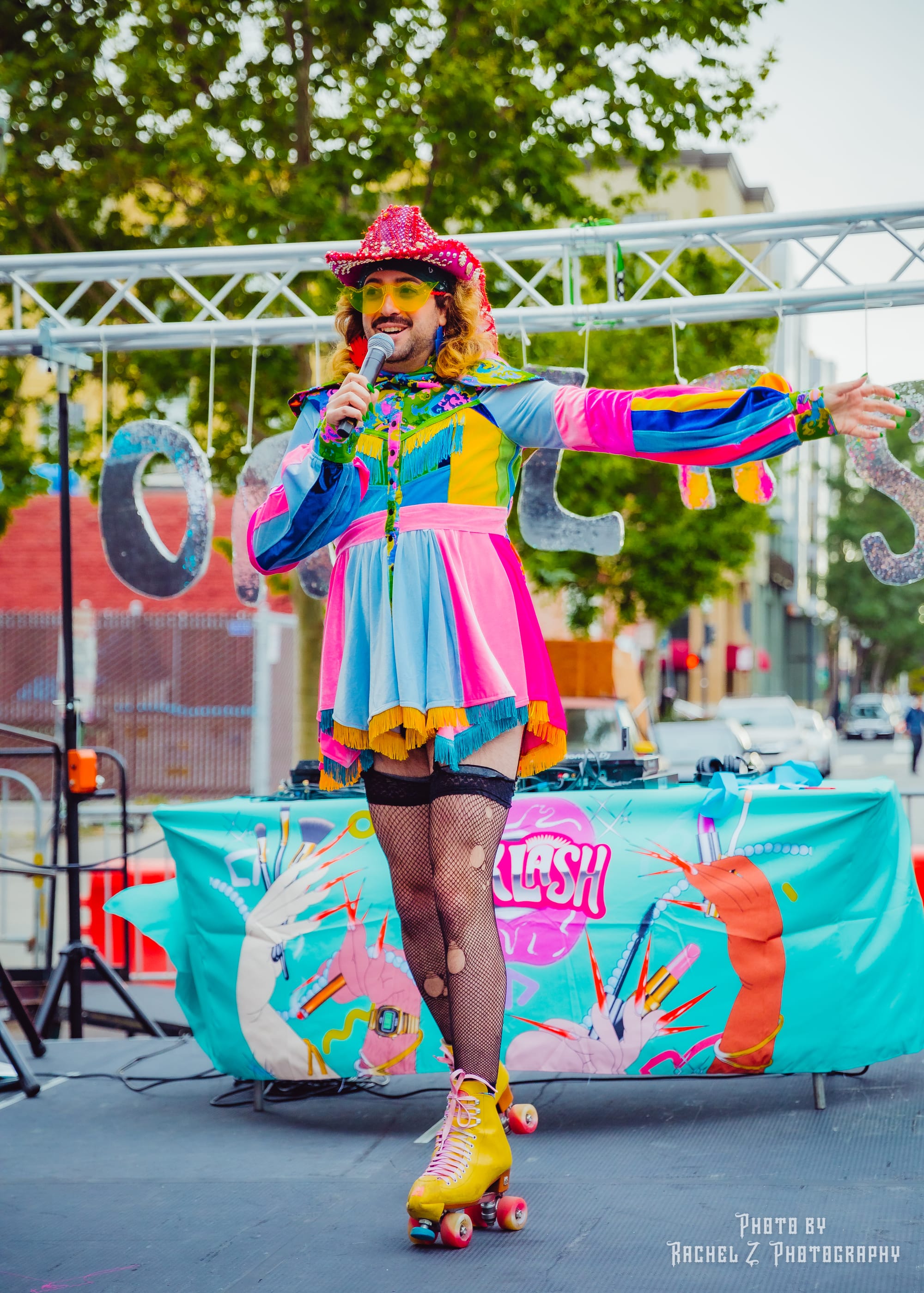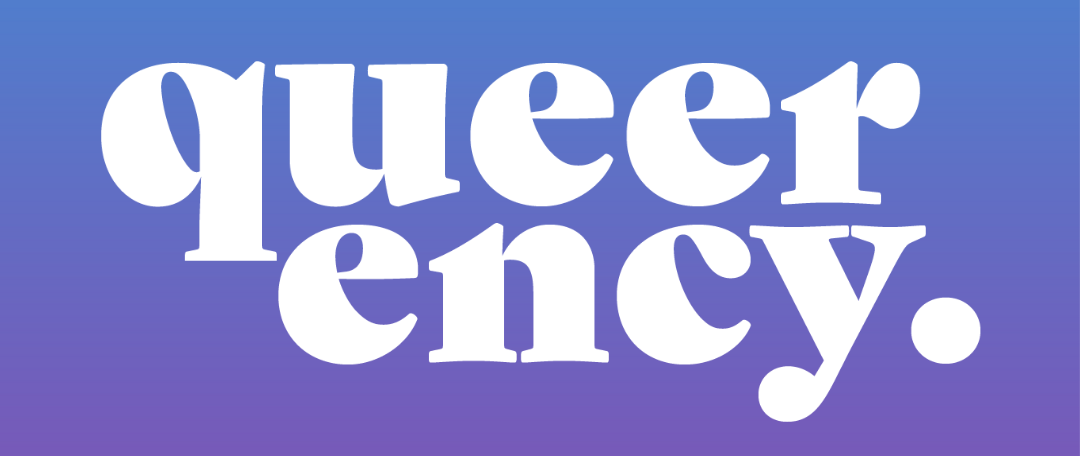Pride season is one of the most lucrative periods of the year for many LGBTQ+ artists, content creators, and drag performers. “June, for me, is one of the most important months of the year for growth,” said Zaheer Subeaux, a queer Palestinian DJ, producer, MC, and community organizer. “It’s my Black Friday.”
But this year, Subeaux and other queer pro-Palestinian artists and activists are boycotting Pride organizations and events that they say have ties to Israel and genocide. For DJ Subeaux, who is based in San Francisco, this means withholding his DJ and MC’ing services from Pride organizations locally and across the country.

So how does boycotting Pride relate to Palestine? “A lot of these [Pride organizations] are allying or investing with companies that are either weapons manufacturers or that have taken a stand with Israel; or have not released statements in support of Palestine, even though they have said to always stand for human rights or to stand for what is right,” Subeaux explained.
Subeaux noted that his boycott targets are not just Pride groups, but “anybody who’s associated, benefiting, or silent––and maybe silent because they have people who are investing in them who are involved in Israel’s genocide of the Palestinians.”
“So far this month, I’ve probably turned down around $10,000 to $15,000. I’ve probably brought in maybe 10% to 20% of the amount of money that I brought in last year.”
But the decision to boycott and divest doesn’t come without a financial cost. As one of the biggest DJs in the San Francisco Bay Area, Subeaux is in high demand. During previous Pride seasons, he says that he made an income of up to $20,000. But this year, he is forgoing many of the highest paying gigs.
“So far this month, I’ve probably turned down around $10,000 to $15,000,” he calculated. “The gigs that I have accepted are a lot more local, a lot more grassroots-based. I’ve probably brought in maybe 10% to 20% of the amount of money that I brought in last year.”
And on top of the decreased income, he also has to allocate a higher percentage of each fee toward travel expenses. “Now I’m getting $500 to $1,000 gigs at best, and now my accommodations are half of the cost of my pay when before they were 10%.”
This loss of income is significant for Subueax because he uses his DJ career to supplement his 9-5 job salary, where he works in HIV prevention. “DJ’ing brings in a huge income cash flow for me during these months that helps me supplement my general 9-5 income,” he said. “My family disowned me when I was younger, so I don’t have resources. I don’t have a blood relation safety network. I’m living paycheck to paycheck, even with my steady job in San Francisco. I’m trying to save to guarantee my future, [and I can’t] right now.”
“What I feel good about at the end of the day is my ethics. I’ll take my ethics any day over pay.”
But Subeaux is motivated to stay the course. “What I feel good about at the end of the day is my ethics,” he said. “I’ll take my ethics any day over pay.
Mutual Aid Funds Fill in the Financial Gaps
Like Subeaux, other queer artists have chosen to drop lucrative gigs that are misaligned with their morals. Some are turning to queer mutual aid funds for support.
One such initiative is The BAD (Bay Area Drag) Fund, a mutual aid fund for drag performers, costume makers, stage hands, producers, tech/lighting specialists, and people in other performance support roles who withdraw their labor in solidarity with Palestine.

“There were a few of us drag performers performing for an event with ties to genocide,” said Harddeep Singh (he/they), a Punjabi drag king and abolitionist community organizer who volunteers for The BAD Fund. “Some of us dropped out and could [afford to] do that, and others were finding it a bit more of a difficult decision because these [gig] fees are life-affirming money a lot of the time, and it’s not always an easy option. “So we decided to draw upon what we know in the queer and trans community–mutual aid–and started a pot for us to put our little dollars in and withdraw from when we needed to drop gigs.”
“As a queer brown person, I grew up knowing about this concept that ‘We take care of us.’ It’s solidarity, not charity.”
Singh said that the fund was inspired by mutual aid traditions in queer communities, labor movements, and communities of color that he witnessed growing up in the United Kingdom.
“As a queer brown person, I grew up knowing about this concept that ‘We take care of us,” he said. “So when we had a bit of spare change, we would literally put it into a central place that aunties would usually look after, and if something went down and someone needed like a lock replaced or a new window on their car, they could turn to this fund that was for everyone–and that everyone had chipped into–and take out what they needed.
“So that’s exactly how [The BAD Fund] works. It’s solidarity, not charity.”
On a practical level, drag artists and other eligible individuals can submit an application by July 19, providing proof of a confirmed gig from which they would like to withdraw. According to the fund’s application form website, “Successful applicants will be randomly selected and receive $250, until the fund is used. Applicants who also identify as QTBIPOC2S will be prioritized by ensuring at least 70% of available funds are held for applicants who identify as such.”
“[We] weaponize our positionality as an institution to redistribute wealth from the mass amounts of money that flow around the Bay Area…into the hands of queer and trans performers.”
The BAD Fund is fiscally sponsored by Oaklash, a Bay Area-based drag and queer performance festival and nonprofit organization. “A big part of our mission when we decided to become a 501(c)(3) nonprofit was to weaponize our positionality as an institution to redistribute wealth from the mass amounts of money that flow around the Bay Area and don’t make it into the hands of queer and trans performers,” said Oaklash co-founder Mama Celeste (they/them).

“It is really hard to say no to a gig that’s offering you $1000 bucks, and Pride Month is a huge moment where a lot of queer and trans performers are making their money so that they can pay their rent for the rest of the year,” they continued. “All that we’re trying to do with The BAD Fund is to create a resource where people can make better decisions for themselves about where they spend their time, what they put their energies to, and what they stick their name on.”
Follow Zaheer Subueax on Instagram: @subeaux
Follow Harddeep Singh and their activism and community organizing efforts on Instagram: @xharddeepx | @thebadfund | @dragforpalestine | @no_more_exclusions_abolition
Follow Mama Celeste and Oaklash on Instagram: @mamacelestefanclub @oaklash2024




